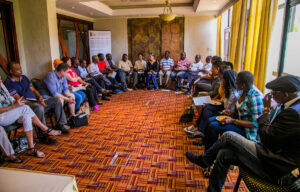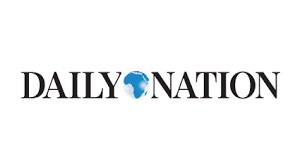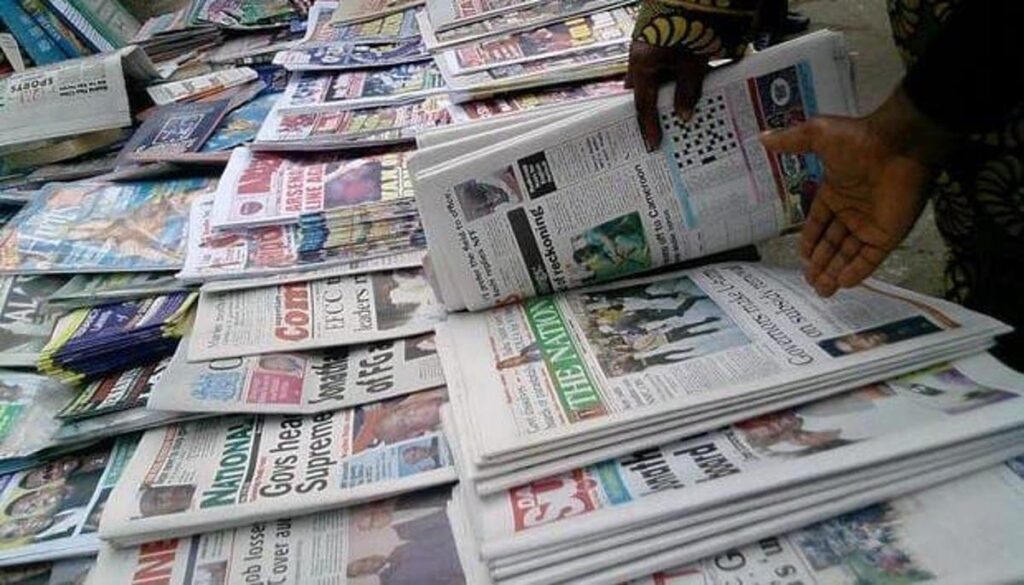Presentation by Lekan Otufodunrin, Executive Director, Media Career Development Network (MCDN) at the MEDIAGIG2020 organised by The Co-builders and MCDN on July 1, 2020
Last Friday, I joined a zoom meeting of my Class 1 Alumni classmates of the ALI Media Blomberg fellowship of 2015 with participants made up of top media managers from Nigeria, Kenya and South Africa.
It was a great time of reunion for us to check in on our lives and professional careers since the four weeks seminars within two years engagement we had travelling and networking across the continent and rounding off the programme in New York with focus on cultivating Financial Excellence in Africa Media.
Undoubtedly the fellowship has greatly impacted on the career of the fellows based on the accomplishments of the fellows immediately and after the programme. They became better media professionals with the knowledge they acquired, got new jobs, promotions, fellowships, awards and many more.
However, what was also apparent from the feedback at the gathering down the years was a glimpse of the state of the media in the three countries. One common trend is the well-known disruption of the media by the economy, digital and more recently the Coronavirus pandemic.
One after the other, the fellows lamented what has become of the once vibrant media organizations in their countries. They spoke of the layoffs, shutdowns, salary cuts and the uncertain future of the profession.

Some fellows have either changed jobs or moved on to something else, including selling business. Former print editors now run their own websites, one has taken on a corporate media job, and another now into media consultancy and training and one had dusted her abandoned law degree and taken up a job in a law firm. Those still holding their media jobs are not sure of how long they would hang on or be retained.
“The media is going through crazy times. Some of us are already thinking of what to do next. We will, however, keep our heads up,” one said. Another’s comment captured the dilemma journalists have despite the challenging times they are faced with: “Journalism is a labour of love. We must find a way of hanging on.”
So, how do we hang on in a sustainable way by making an impact and profiting from whatever we have to continue doing?
How can we reinvent our industry like other sectors equally hit by some of the factors affecting us?
The above questions among others are the issues I want to quickly focus on my presentation.
The sorry state of the media characterized by poor pay, irregular payment and non-payment in some cases, lack of conducive work environment and many others have always been known by all, but the Coronavirus seems to have finally exposed the true state of the media in the country.
Comments by two top Managing Directors in the industry, one before the Coronavirus crisis and the other after are clear indicators of what may eventually happen to our beloved profession unless we fully understand the issues we have to find solutions to.
Like one of the promos for this programme, You can’t solve a problem you don’t understand. Many of us assume we do, but we don’t well enough based on what our responses have been. Some are just confused and have given up waiting for the worst. Some of us are rising up to the occasion, but we can do better. The above reasons explain why this training is necessary and most of us don’t know any other thing to do except to remain media professionals in whatever way.
So, whatever the situation, we must continue to make an impact and profit from what we can do and must do.
Here is a quote from an unusual memo from the MD of The Punch, Mr Ademola Osinubi. The longest-serving head of a newspaper in Nigeria. He hired me as a reporter in 1987 when he was Deputy Editor of the paper.

“This pandemic has dealt our business telling and severe blows. Our circulation and advertisement revenues dipped dangerously, compounding the operational and revenue challenges birthed by the migration of a majority of print newspaper readers and adverts to digital platforms.
“As things stand, there is no ground to believe that the revenue situation will improve in the short-term. All projections point at a bleak and uncertain future for our industry and the economy.”
The Punch Newspaper is undoubtedly, the nation’s leading publication. It pays the highest salaries and offers the best conditions of service in the print sector. If the statement of the MD is anything to go by, the situation in the print is precarious.
The Managing Director of The Nation and former MD of THISDAY, Mr Victor Ifijeh has the following to say on the fate of the print media:
“ The effect of the Internet on print is more devastating. The digital revolution strikes at the core of the print business. While what basically constitutes journalism hasn’t changed over the centuries and may not change for years to come, how it is practised is undergoing massive changes brought about by the digital revolution.

“ To say that the print is seriously challenged is an understatement. To say that it is in decline is putting it mildly. One commentator says the print is dying slowly”
Even though newspapers in Nigeria are not willing to state their true copy sales figure, what is not in doubt is that the combined daily figures for all publications are not sustainable.
While there are no reliable and updated data on newspaper sales in Nigeria, a simple google search provides a lot about how well and unwell the papers in South Africa and Kenya are doing.
The Audit Bureau of Circulation figures and other research findings are available for Newspapers and Magazines
Daily newspaper circulation fell by 10% yoy — ABC Q1 2019
http://www.marklives.com/2019/05/daily-newspaper-circulation-fell-by-10-yoy-abc-q1-2019/

Newspaper overview
- Total newspaper circulation declined by 1.4% the previous quarter, and by 5.0% on the previous year
- Daily newspapers declined by 2.6% on the previous quarter, and by 10.5% on the previous year
- Weekly newspapers declined by 0.5% on the previous quarter, and by 7.9% on the previous year
- Weekend newspapers declined by 1.6% on the previous quarter, and by 10.4% on the previous year
- Local newspapers increasedby 0.2% on the previous quarter, but declined by 8.1% on the previous year
- Free newspapers declined by 1.4% on the previous quarter, and by 3.0% on the previous year.
Although Daily Nation is the only paper in Kenya that subscribes to ABC, there are other current data for measuring the performance of the newspapers and magazines in the country.
Interesting Trends in Newspaper Readership in Kenya
https://businesstoday.co.ke/newspaper-readership-in-kenya-daily-nation-standard/
The latest report on media consumption for February and March 2019 by Kenya Audience Research Foundation (KARF) puts the newspaper readership in Kenya and reach at an average of just 9.5% of the population, having grown marginally from 9% in February to 10% in March. It’s even worse for magazines, which only attracted 0.2% and 0.1% of the media consumers sampled.

The shameful unavailability of sales figures in Nigeria is captured in this report by Akin Olaniyan a former Business Editor at The Punch and a top media executive at Zenith Bank who is now pursuing a doctorate degree in South Africa.
How Many Copies Are Nigerian Newspapers Selling?
http://akinolaniyan.com/how-many-copies-are-nigerian-newspapers-selling/
“The Guardian newspaper on its website says it has one million daily print readers while my research proposal cited an article, which suggested that the fifteen biggest newspapers in Nigeria were together selling less than 300,000 copies per day. The article was based on figures from an independent study by the Advertisers Association of Nigeria (ADVAN) that is till date disputed by the newspaper industry.
By the way, the disputed ADVAN study is the only available figure you’ll find regarding the circulation of Nigerian newspapers”

Without being a prophet of doom, what is sure is that only very few newspapers in Nigeria will survive in the long run.
Even the ones that will survive will need only a few staff who have multimedia skills.
So, for those who are still employed in the print, they should not rule out further layoffs, not because their services are not needed, but because their organizations cannot make enough money to pay. This reality is not peculiar to Nigeria as the print media has globally been hard hit with many legacy publications shutting down and some migrating online.
While enhancing online publishing is an option for legacy media in Nigeria, which they are already doing, not all of them are devoting enough resources to earn them possible revenue. But for a few, the legacy publications in the country are at best operating their online platforms with an analogue mentality.
There is no proper convergence of the old newsroom as it was and still is with the online operations. Many editors still claim to the be gatekeepers of information when in fact there is literarily no more gate in the information overload age.
Many staff lack the digital knowledge needed to compliment the online operations. The social media presence of both organizations and staff still fall short of what can make many print publications in Nigeria have the required brand enhancement and reach.
The digital revenue model is obviously still confusing to the legacy media in Nigeria as they are not sure if they can risk paywalls even for premium content or ask for payment for digital offerings like their PDF versions that are circulated free on WhatsApp groups daily. Some offer their PDF for about N50k but most others don’t or are easily have their copyright and non-sharing policy violated without any resistance from them.
In Kenya, the distribution of pirated or original digital copies of is an offence as shown in the story below.
Man selling pirated digital copies of newspapers arrested
Available options are clear for print media in Nigeria. They need to overhaul their operations in accordance with required multimedia operations as not only a newspaper company but media companies offering a range of services and diversified approach to content distribution.
It used to be that papers like the old Daily Times had diversified business operations like what still obtains with The Nation in Kenya but that is no longer the situation. The economic situation has forced them to even suspend additional publications and allied business and are battling to produce and sell the main titles.
Unfortunately, copy sales and adverts are no longer enough to sustain the newspapers.
It is also crucial to improve on content offered the readers. More than routine news that is available long before the print editions, newspapers have to offer more updated news reports, informed analysis, data-rich reports and other premium reports that can make newspaper purchase compelling.
The following observation and suggestions by Olaniyan which I fully agree with should be food for thought for the newspaper owners and managers in Nigeria. They need to act fast and adopt best global practices since the disruption of the industry is not peculiar to us.
“ So, what way forward for Nigerian newspapers? I get the sense that most are failing to respond adequately to the digital disruptions and that looks to me like where they have to start. The information gaps on their websites mentioned earlier sum it all up. When compared, the information on the Wikipedia profiles of ThisDay, Punch and Leadership fall come out second best to those of say, New York Times and Financial Times, yet that’s probably the first point of call when people are looking for information about them.
“ Again, when compared, the New York Times and Financial Times do a better job than any Nigerian paper, of selling themselves with the media kits they have on their websites. You get a full picture of their strengths with the detail of their readership and reach just by looking at the media kits, something you wish Nigerian papers will start doing. These obvious gaps suggest the absence of clear digital strategy, which can drive online revenue in the way that the likes of the New York Times and Financial Times are doing with their online versions.
“ In addition to upping their games online, the revival of the Audit Bureau of Circulation or some independent body to audit circulation is necessary for to do otherwise is to risk imminent implosion. Unless they submit to that independent, transparent process, advertising revenue will continue to fall as more people question the rationale of spending big on newspaper ads they’re not sure is effective.”
Our print media companies need to urgently conduct skills audit and retrain their staff to utilize their expertise in more ways than reporting and writing. Where they don’t have the required skills to implement new ideas, they should not hesitate to hire and be ready to pay good salaries.
Instead of waiting to be sacked or continuing to perform uninspiring tasks, journalists who are caught in the uncertainty should plan their exit before it’s late and pursue their own media career initiatives.
They should conduct an honest self-assessment and acquire skills that can guarantee them a future in the industry either as employees or media entrepreneurs.
Proper preparation by taking advantage of various online and offline training opportunities, getting specialist advice and mentoring are key to surviving outside paid employment.
A few newspapers still have a chance of remaining in print for some time to come, but definitely not with the present old model many still rely on. They must innovate or like experts have warned die.
Thanks for listening
CONTACT DETAILS
- Website: mediacareerng.org
- Email : info@mediacareerng.org/ lekanagency@yahoo.com
- Telephone: 08023000621, 08050498530 (Whatsapp)
- Twitter: @lotufodunrin
- LinkedIn: Lekan Otufodunrin
- Facebook/Instagram: Lekan Otufodunrin

